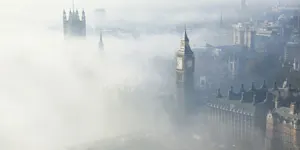What Makes This Word Tick
"Verdant" is like a gentle nudge from nature itself, reminding us of lush greenery and vibrant plant life. It’s a word that paints a picture of landscapes carpeted in rich greens—think of rolling hills in the spring or a garden full of thriving plants. It's a favorite in the lexicon of those who cherish the outdoors, evoking a sense of freshness and renewal.
If Verdant Were a Person…
If "verdant" were a person, they'd be the sort who always has herbs growing on their kitchen windowsill and a knack for keeping houseplants alive. This person would likely have a sunny disposition, radiating a certain vitality and zest for life. They'd be the one encouraging you to take a walk in the park or to stop and admire the lushness of a summer oak.
How This Word Has Changed Over Time
Originally sprouting from the Old French "verdoier," meaning "to be green," "verdant" has stayed true to its leafy roots. Over time, it has remained a beloved descriptor in English, consistently used to describe places rich with greenery or metaphorically, new and inexperienced people (green in another sense, perhaps). Verdant has not strayed far from its initial lushness.
Old Sayings and Proverbs That Use Verdant
While classic idioms specifically using "verdant" might not roll off the tongue, the word embodies the spirit of sayings like "the grass is always greener." It also brings to life notions of youth and inexperience, often described metaphorically as being "green" or in a "verdant" stage of life.
Surprising Facts About Verdant
"Verdant" is particularly favored by poets and authors who want to conjure vivid and lively scenes with minimal words. Interestingly, it’s not just limited to landscapes; "verdant" can describe anything that embodies the qualities of lush, rich greenery, including ideas, personalities, or simply a state of burgeoning growth.
Out and About With This Word
You might find "verdant" strolling through botanical garden brochures, popping up in real estate descriptions of picturesque properties, or gracing the pages of travel guides extolling the virtues of tropical rainforests. It's a word that likes to strut its leafy stuff in the great outdoors.
Pop Culture Moments Where Verdant Was Used
While "verdant" might not headline blockbuster movies, it subtly underpins the scenery descriptions in films featuring sweeping natural landscapes. Think of any lush jungle or idyllic countryside in works like "The Sound of Music"—the unseen green star of cinematic scenes.
The Word in Literature
Authors such as J.R.R. Tolkien and C.S. Lewis could have filled pages with the word "verdant," given their love for depicting opulent worlds brimming with life. The term fits naturally into the realms of fantasy and pastoral genres, where evoking lush landscapes can transport a reader to another world.
Moments in History with Verdant
In history, the spirit of "verdant" might be captured in the early environmental movements, where lush landscapes needed champions to prevent deforestation. Perhaps the reforestation drives of the 20th century are where "verdant" would have worn a banner, so to speak, signaling the return to or preservation of vibrant greenery.
This Word Around the World
Globally, "verdant" finds its equivalents in other languages, each celebrating the green heart of nature. The Spanish "verder" has a similar verdant charm. In cultural traditions across Asia, the vibrant green of rice paddies or the emerald hues of sacred groves find their verdant voices in local dialects and expressions.
Where Does It Come From?
"Verdant" springs from the Latin "viridis," meaning "green" or "to sprout." Like a hardy perennial, it took root in Old French as "verdoier," before blooming into the English use we know today. Its lineage is as lush as the landscapes it describes.
How People Misuse This Word
Every now and then, "verdant" is mistakenly used to describe something unrelated to greenery or growth, such as in a metaphor where the connection isn’t clear. Remember: keep it green, lush, and lively!
Words It’s Often Confused With
Viridian: A shade of green that's similar but used primarily in art to describe color.
Verbatim: Sounds similar but means "word for word" and has nothing to do with greenery.
Vertiginous: This refers to causing vertigo or dizziness, not verdant landscapes.
Additional Synonyms and Antonyms
Similar words to "verdant" include "lush," "grassy," and "leafy." Its antonyms bring to mind dryness and barrenness: "arid," "barren," and "withered" stand opposite the verdant spectrum.
Want to Try It Out in a Sentence?
After the rain, the garden and the fields beyond seemed more verdant than ever, offering a feast for the eyes and a balm for the soul.
















